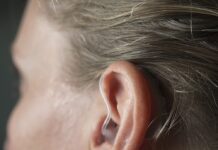
An ear specialist is commonly known as an otolaryngologist or ENT. In most cases, your family physician will refer you to an ENT if you have the following possible complaints: vertigo/ dizziness, unilateral tinnitus or ringing, ear pain or otalgia, sudden hearing loss, and/or any problem related to your throat or olfactory sense. If your only complaint is decreased hearing, your family physician should refer you to an audiologist for a complete evaluation.
If during the evaluation, the audiologist documents asymmetrical hearing loss (i.e., one ear better than the other ear), he or she will refer you to an ENT for further diagnostic testing. Most people who are experiencing hearing difficulty have sensorineural hearing loss (i.e., nerve damage) and can only improve their hearing ability with hearing aids.
Communication, socialization and a feeling of well-being are strongly dependent on better hearing. The personal impact of wearing hearing aids goes beyond treatment of a hearing loss.
According to The National Counsel on Aging, treatment with hearing instruments relates to improved inner personal relationships with family, reduction in depression, reduction in anger and frustration, improved emotional stability, enhanced group social activity and improved overall health.
The next time you see your family physician, educate them about hearing loss. Ask if they routinely screen for hearing loss in their office. Your family physician or general practitioner is the true gatekeeper to better hearing for most people.
Dr. Izzy and his staff are always available to answer most of your questions regarding your hearing health. His offices are in Toms River, Whiting, and Manahawkin. He can be reached at 732-276-1011 or via gardenstatehearing.com.






